|
Zizhao Wang I am a PhD student in ECE at the University of Texas at Austin, advised by Prof. Peter Stone. My research focuses on reinforcement learning, LLM (agents), world models, and causal reasoning. Previously, I completed my M.S. in CS at Columbia University, advised by Prof. Peter Allen and Prof. Itsik Pe’er, and my undergraduate studies at the University of Michigan - Ann Arbor. I also spent time as research intern at Google, Microsoft, and Honda Research Institute. Email / Google Scholar / LinkedIn / Twitter / CV |

|
Selected Works |

|
Adversarial Reinforcement Learning for Large Language Model Agent Safety
Zizhao Wang*, Dingcheng Li, Vaishakh Keshava, Phillip Wallis, Ananth Balashankar, Peter Stone, Lukas Rutishauser, preprint, 2025 paper / project page Improve LLM agent safety by co-training an attacker that creates malicious prompt injections and an agent that learns to defend against them. |

|
Dyn-O: Building Structured World Models with Object-Centric Representations
Zizhao Wang*, Kaixin Wang, Li Zhao, Peter Stone, Jiang Bian, Neurips, 2025 paper Build structured world models with object-centric representations. |
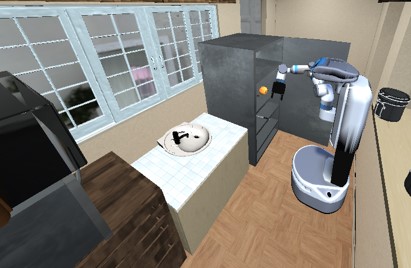
|
SkiLD: Unsupervised Skill Discovery Guided by Factor Interactions
Zizhao Wang*, Jiaheng Hu*, Caleb Chuck*, Stephen Chen, Roberto Martín-Martín, Amy Zhang, Scott Niekum, Peter Stone Neurips, 2024 paper / code / project page A unsupervised skill discovery method that induces diverse interactions between state factors, which are often more valuable for solving downstream tasks. |

|
CaMP: Causal Motion Predictor for Robust Trajectory Forecasting
Zizhao Wang*, Chen Tang, Aolin Xu, Enna Sachdeva, Peter Stone, Teruhisa Misu preprint, 2024 paper (to be released) Improve the robustness of motion prediction models by inferring causal relationships between agents. |
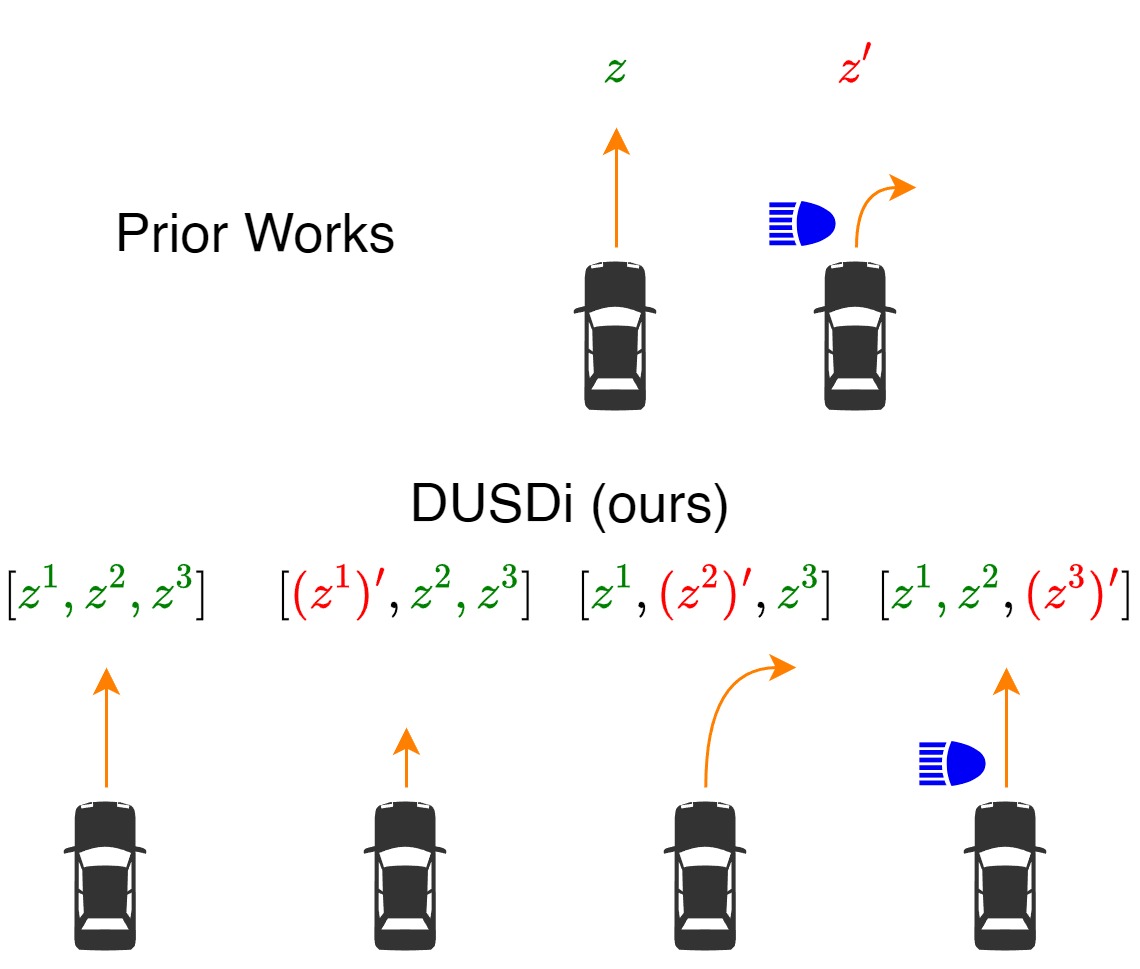
|
Disentangled Unsupervised Skill Discovery for Efficient Hierarchical Reinforcement Learning
Jiaheng Hu, Zizhao Wang, Peter Stone, Roberto Martín-Martín Neurips, 2024 paper / code / project page A method for learning disentangled skills where each skill component only affects one factor of the state space, so skills can be efficiently reused to solve downstream tasks. |
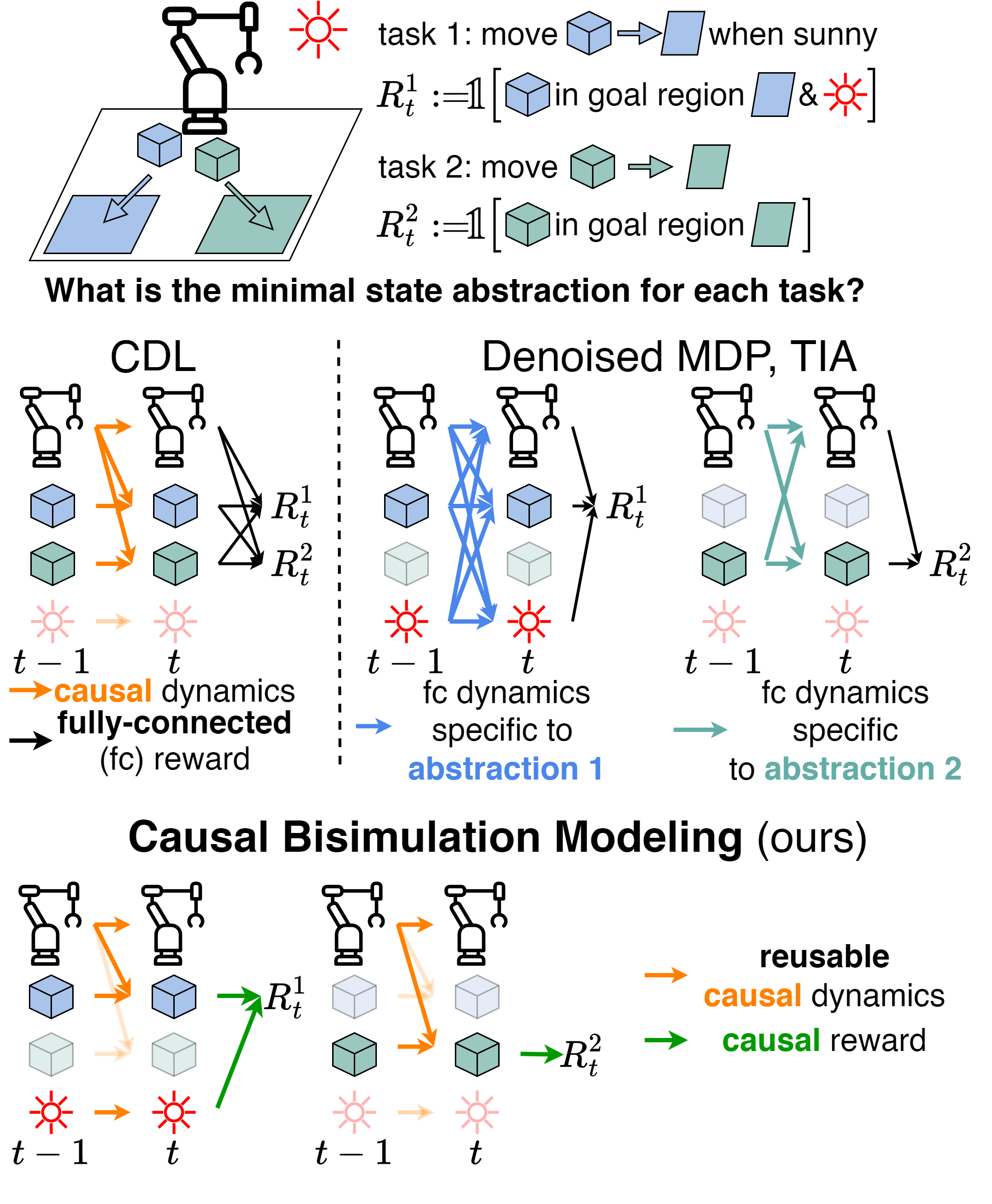
|
Building Minimal and Reusable Causal State Abstractions for Reinforcement Learning
Zizhao Wang*, Caroline Wang*, Xuesu Xiao, Yuke Zhu, Peter Stone, AAAI, 2024 (Oral) paper / slides Improve exploration by visiting states where the agent is uncertain whether (as opposed to how) entities such as the agent or objects have some influence on each other. |
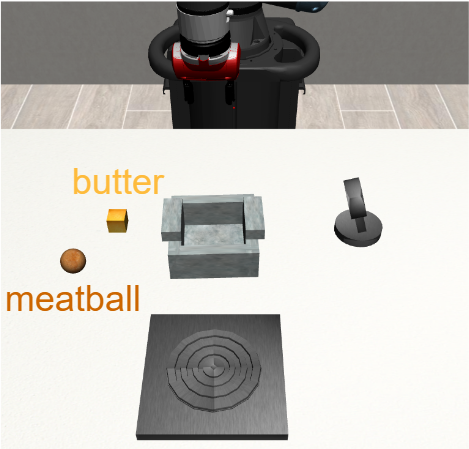
|
ELDEN: Exploration via Local Dependencies
Jiaheng Hu*, Zizhao Wang*, Peter Stone, Roberto Martín-Martín Neurips, 2023 paper / poster Learn the causal relationships in the dynamics and reward functions for each task to derive a minimal, task-specific abstraction. |
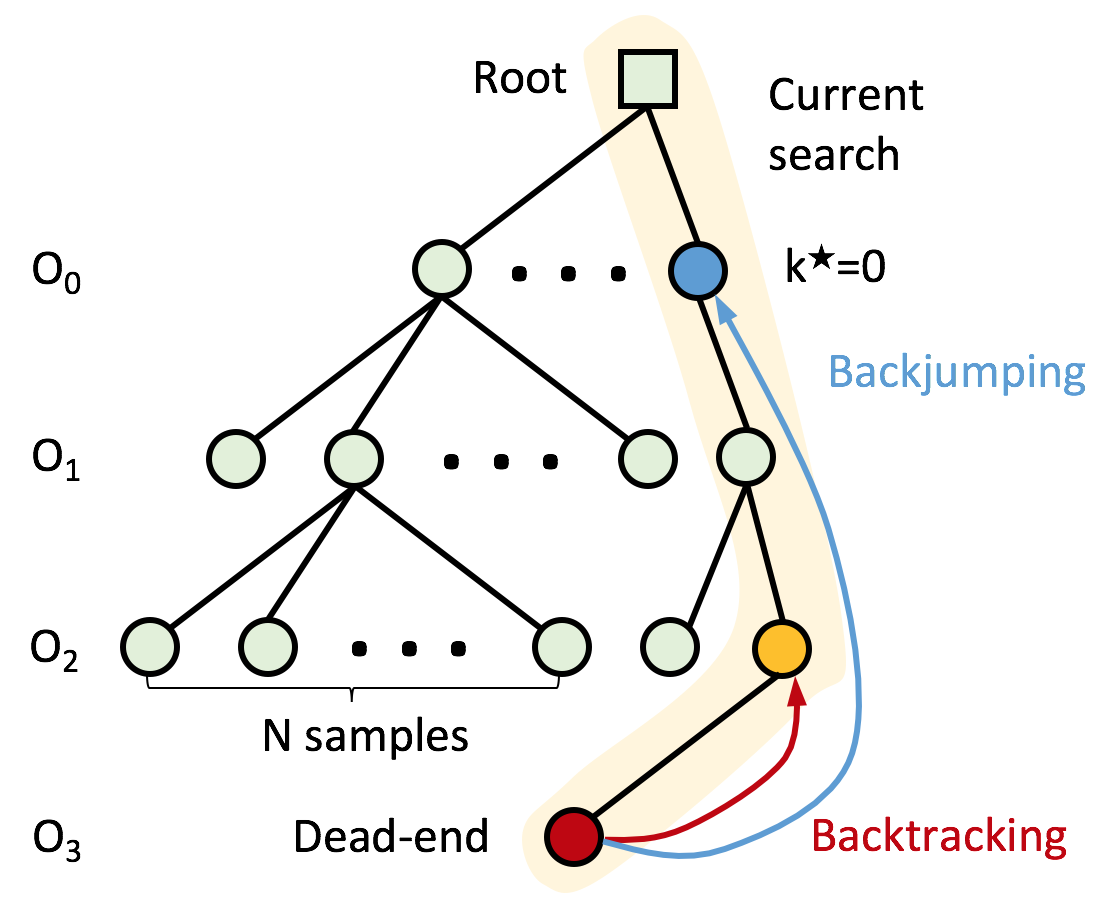
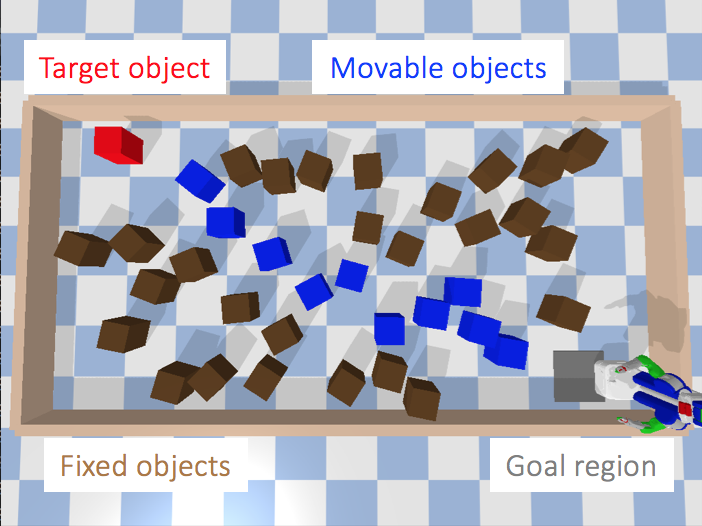
|
Learning to Correct Mistakes: Backjumping in Long-Horizon Task and Motion Planning
Yoonchang Sung*, Zizhao Wang*, Peter Stone CoRL, 2022 paper When task and motion planning search reaches dead-ends due to an early action, we identify and backjump to the culprit action to resample it, improving the search efficiency compared to backtracking. |
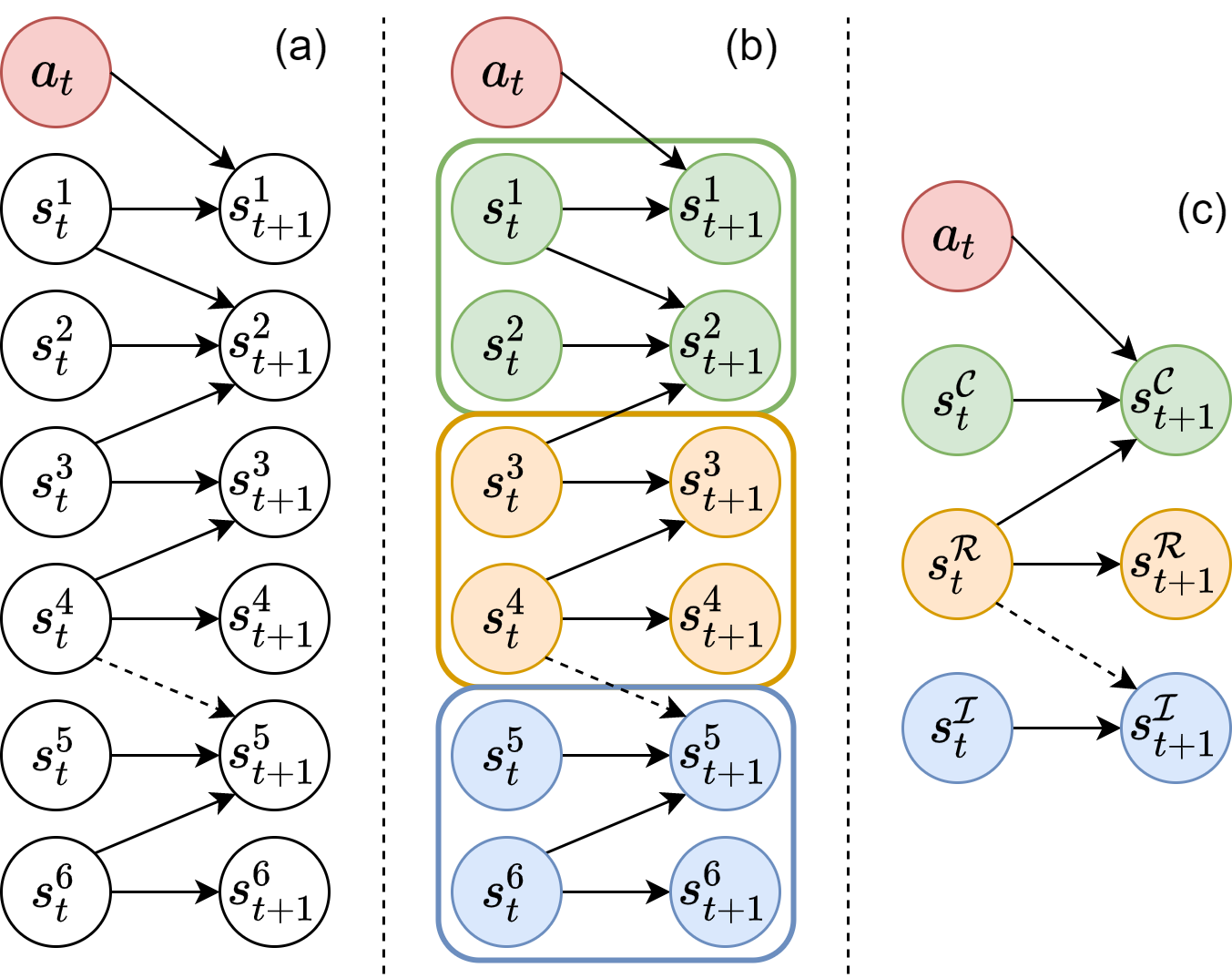

|
Causal Dynamics Learning for Task-Independent State Abstraction
Zizhao Wang, Xuesu Xiao, Zifan Xu, Yuke Zhu, Peter Stone, ICML, 2022 (Oral) paper / poster / slides / code Learn a theoretically proved causal dynamics model that removes unnecessary dependencies between state variables and the action, so it generalizes well to unseen states. |
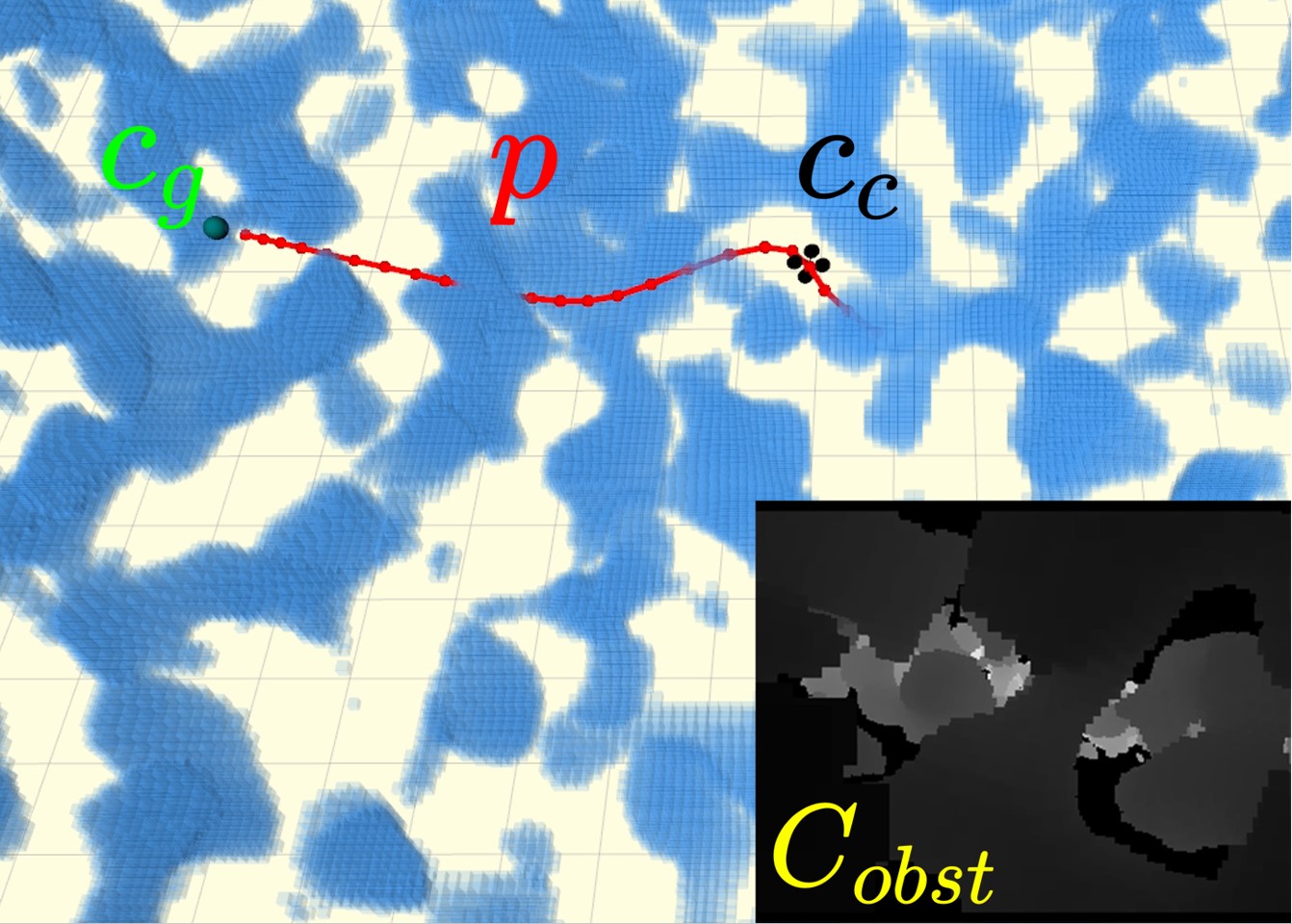
|
From agile ground to aerial navigation: Learning from learned hallucination
Zizhao Wang, Xuesu Xiao, Alexander J Nettekoven, Kadhiravan Umasankar, Anika Singh, Sriram Bommakanti, Ufuk Topcu, Peter Stone, IROS, 2021 paper / poster / slides Generate cheap training data for navigation by hallucinating obstacles. |
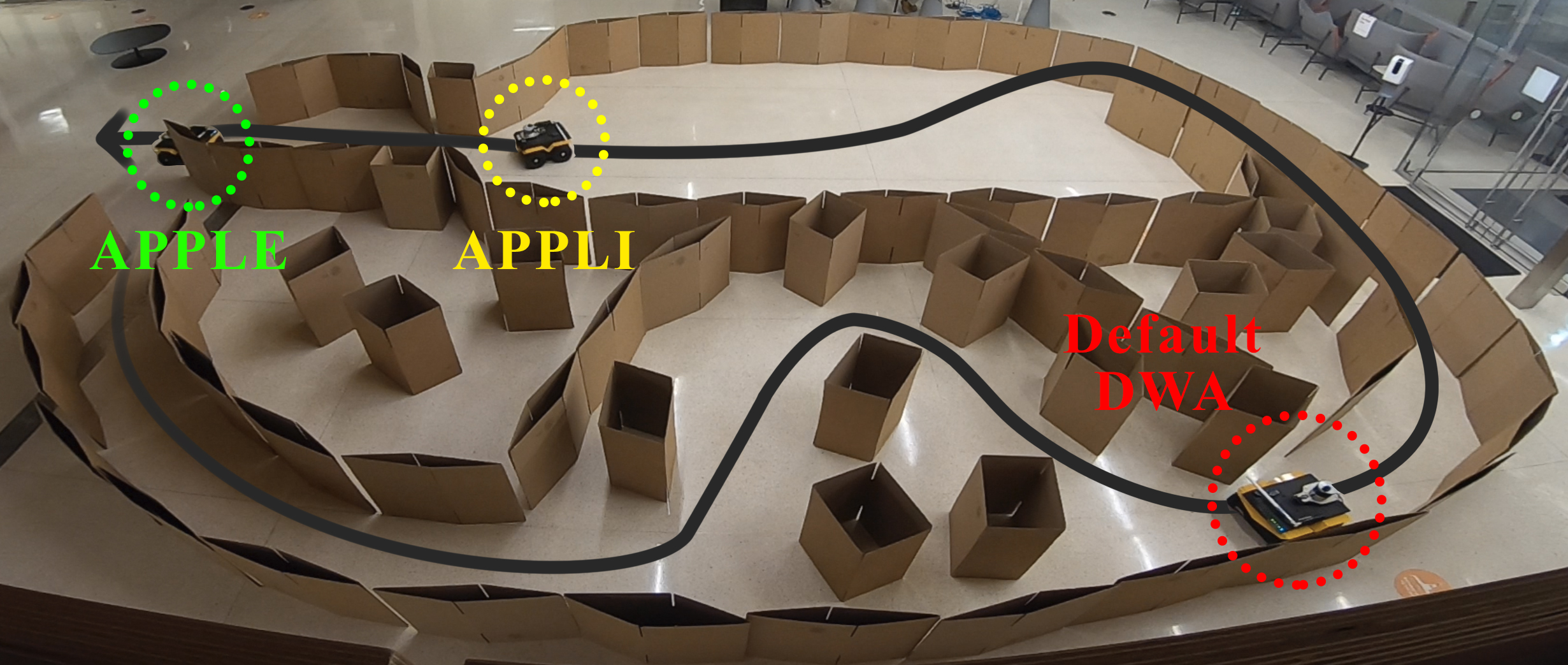

|
APPLE: Adaptive Planner Parameter Learning from Evaluative Feedback
Zizhao Wang, Xuesu Xiao, Garrett Warnell, Peter Stone, IROS, 2021 paper / slides Learn how to dynamically adjust planner parameters using evaluative feedback from non-expert users. |
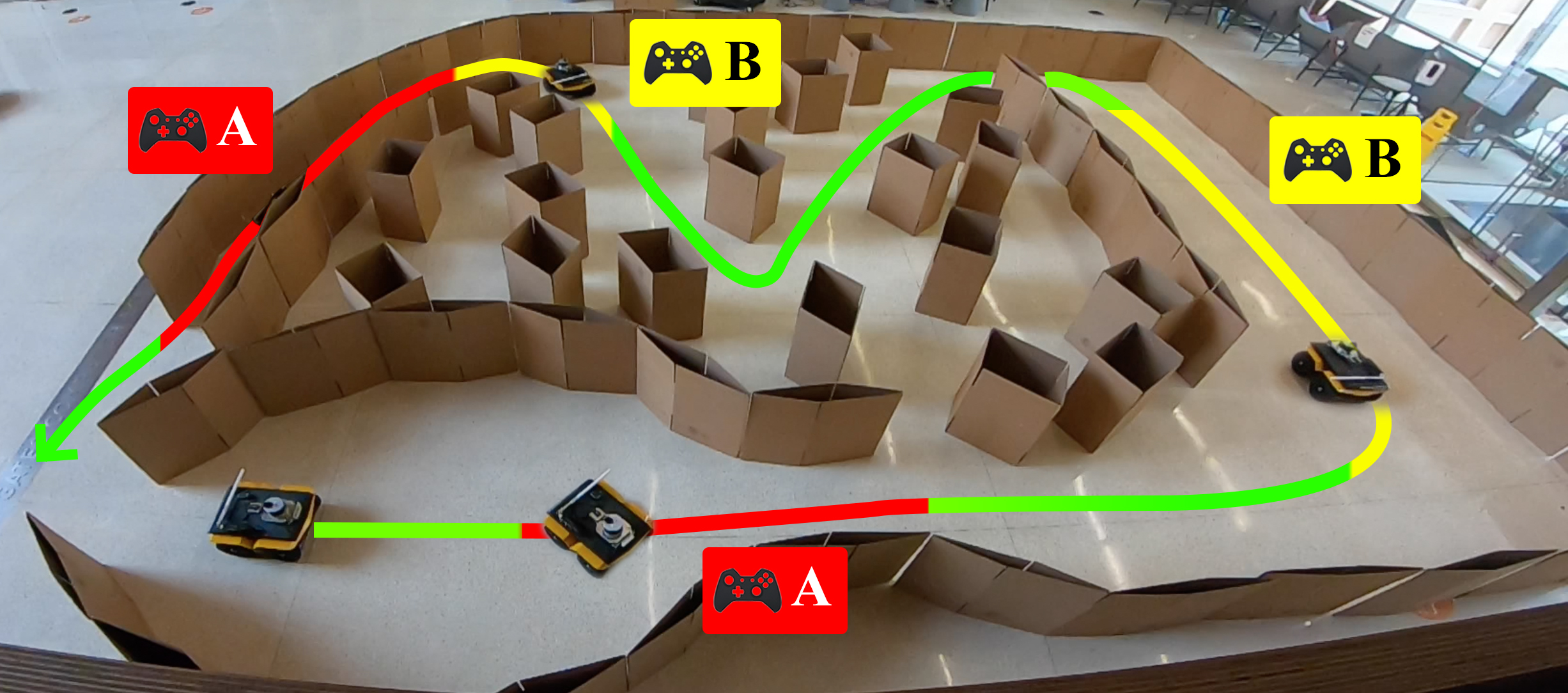
|
APPLI: Adaptive Planner Parameter Learning from Interventions
Zizhao Wang, Xuesu Xiao, Bo Liu, Garrett Warnell, Peter Stone, ICRA, 2021 paper / slides Learn how to dynamically adjust planner parameters using interventions from non-expert users. |
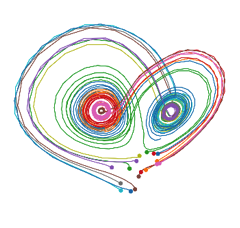
|
Variational Objectives for Markovian Dynamics with Backward Simulation
Antonio Khalil Moretti*, Zizhao Wang*, Luhuan Wu∗, Iddo Drori, Itsik Pe’er, ECAI, 2020 paper A novel variational inference framework for nonlinear hidden Markov models. |
Teaching and Services |
|
Organizer of Causality for Robotics Workshop at IROS 2023
Reviewer for NeurIPS, ICML, IROS, ICRA, and RA-L Teaching assistant for Reinforcement Learning (CS 394R), Causality and Reinforcement Learning (ECE 381V), and Artificial Intelligence (CS 343). |